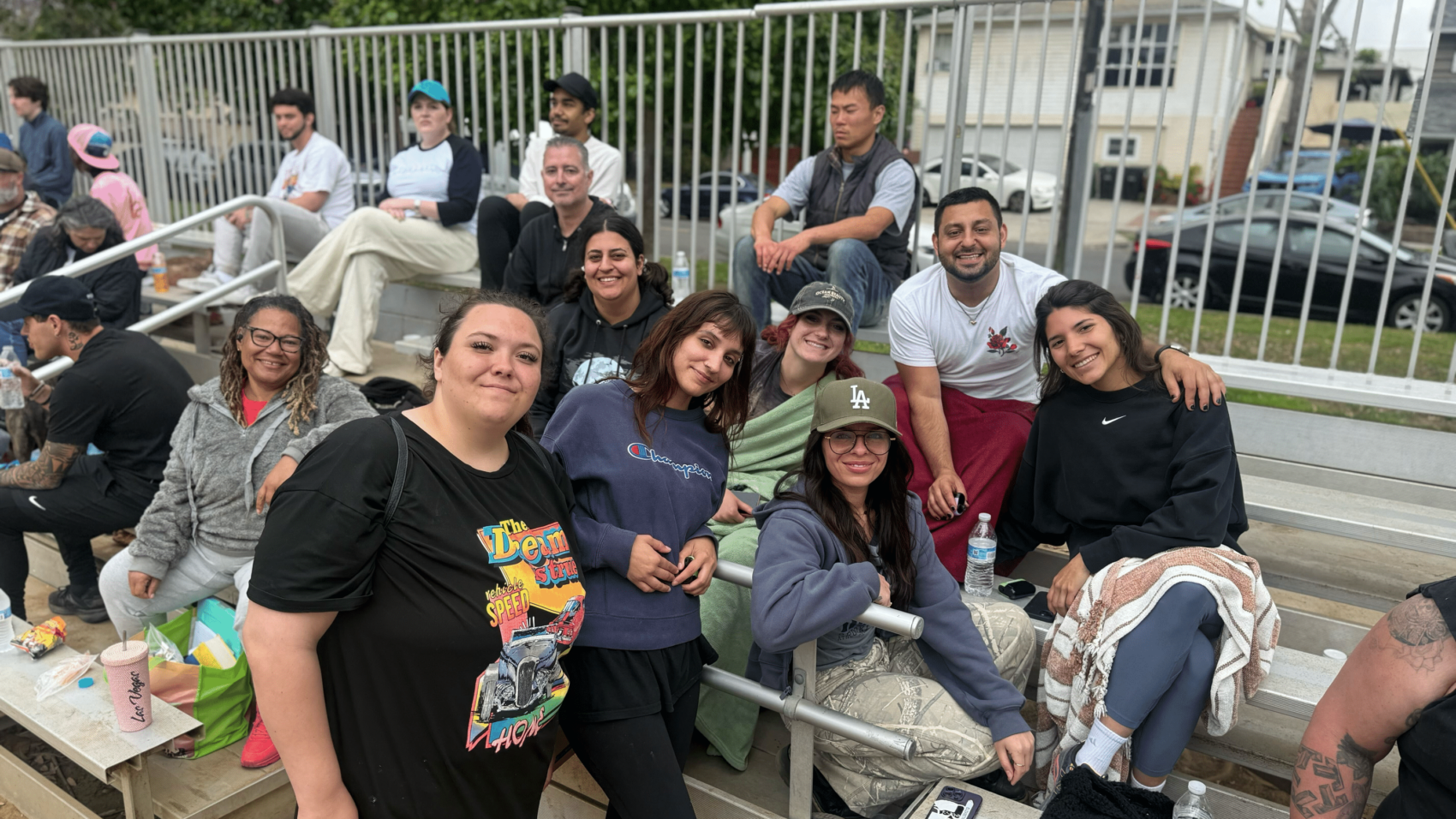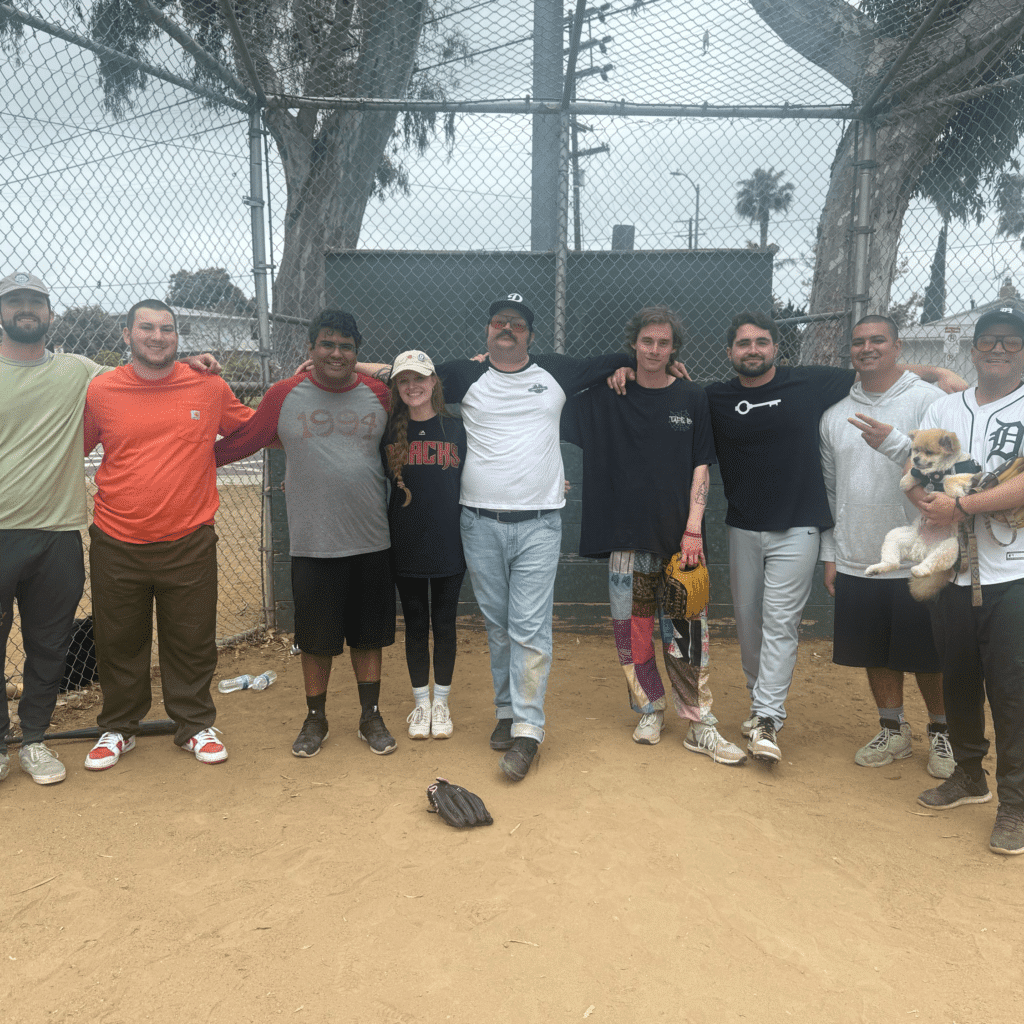At The Last House Sober Living in West Los Angeles, we know that sobriety is more than just abstaining from drugs and alcohol. It’s about building a life that feels full, connected, and fun. That’s why every Saturday, we do something different. We get outside. We get active. We laugh together. We make memories. But most importantly, we strengthen the bonds that hold us accountable and keep us moving forward in our recovery. These Saturday events aren’t just an afterthought or a bonus—they’re a core part of the treatment experience we offer our residents. They give structure, purpose, and joy to the weekend, a time that can otherwise feel unstructured or triggering during early recovery.
Each week, one of the guys is responsible for planning the event. This keeps everyone involved and invested. It encourages leadership, creativity, and participation. Sometimes the event is high energy, like a basketball game or a competitive pickleball match. Other times, it’s more laid back, like a beach day in Santa Monica or watching a UFC fight as a house. No matter what the activity is, the goal is the same: to enjoy life sober, to build trust, and to create community. That’s what sets The Last House apart from other Los Angeles sober living homes. We believe that treatment doesn’t end with therapy sessions—it lives in the real world, in these moments of connection and shared experience.
Many of our Saturday events take place in and around the neighborhoods of West Los Angeles. Whether we’re exploring a museum downtown, hiking in Malibu, mini golfing in Sherman Oaks, or hosting a backyard barbecue at the house, the city becomes a playground for sober living. Los Angeles is filled with opportunities for fun that don’t require substance use, and part of our mission is to reintroduce our residents to these kinds of experiences. When you remove drugs and alcohol from your life, there’s a fear that you’ll never have fun again. But we prove that wrong every weekend.
Planning and leading the Saturday event is also a chance for residents to step into a new level of responsibility. For guys who have been living in chaos or isolation, it’s powerful to take ownership of something that brings people together. It could be as simple as organizing a water balloon fight in the backyard, or as involved as booking a trip to the museum and making sure everyone has a ride. But no matter the scale, the act of planning it matters. It builds self-esteem. It gives purpose. It shows the guys that their ideas and effort can impact others in a positive way. And in recovery, that sense of purpose is everything.

The camaraderie that grows through these Saturday outings is one of the most important parts of our long-term recovery model. Sober living isn’t just about avoiding relapse—it’s about learning how to live. And no one does that alone. These group experiences create real bonds. The kind that carry over into weekday life. The kind that help someone feel safe enough to share honestly in a group. The kind that get someone to speak up when they’re struggling instead of keeping it to themselves. By laughing together, sweating together, even just hanging out together, we build the kind of trust and loyalty that turns a group of guys into a brotherhood.
There’s also something healing about play. After months or years of pain, burnout, and chaos, it’s a relief to just let loose. To chase a volleyball across the sand. To yell at the TV during a football game. To goof around at a miniature golf course or roast each other over burgers during a backyard cookout. These aren’t childish activities—they’re reminders that joy is allowed. That you can be sober and still feel light. Still feel free. Still feel human.
Our Saturday events also serve as an important accountability tool. Everyone is expected to show up, participate, and be present. It doesn’t matter if someone’s been having a hard week—they’re encouraged to show up anyway. And what often happens is that guys who didn’t feel like joining end up laughing the hardest. They feel better by the end. They feel included. That kind of momentum matters in recovery. When you consistently show up for your peers, you start to show up for yourself.
Over time, these events create a rhythm. Something residents can look forward to. Something they can count on. Structure is vital in early sobriety, especially for those coming from inpatient treatment or chaotic environments. Having a consistent weekly event that blends fun with structure reinforces that life in recovery is both stable and exciting. It helps bridge the gap between the treatment world and the real world. It makes the idea of sober adulthood less scary and more inviting.
Saturday events also become something our alumni remember and cherish. Many of the guys who have graduated from The Last House still talk about their favorite outings. They remember the spontaneous laughter, the awkward attempts at new sports, the moments of connection. These experiences become part of the story they carry with them into long-term recovery. And for those who stay involved with the house after graduation, they often come back to participate or even help plan future events. That sense of continuity reinforces the community aspect of what we do. It turns sober living into a lifelong brotherhood, not just a temporary program.
In a city like Los Angeles, where temptation and distraction are everywhere, creating intentional moments of fun and fellowship becomes even more important. West Los Angeles in particular is filled with nightlife, entertainment, and high-paced living. But there’s also incredible natural beauty, cultural richness, and creative energy. Our Saturday events help residents reconnect with the parts of the city that support their recovery. They get to experience museums, beaches, sports, and community events in a new light. Not as places to party, but as places to grow. Places to live. Places to thrive.
The Last House is not just another Los Angeles sober living home. We are a structured, purpose-driven community that understands the importance of shared experience in recovery. Our Saturday events are not optional add-ons—they are pillars of our program. They help our residents build friendships, take initiative, and rediscover joy. They remind everyone that sobriety is not an end, but a beginning. A beginning filled with laughter, adventure, and real connection.
So whether we’re on the basketball court, swimming in the ocean, or just hanging out in the backyard throwing water balloons, we’re doing more than just killing time. We’re building lives. We’re rebuilding trust. We’re showing up for one another. And we’re proving, every single week, that life in recovery can be exciting, meaningful, and absolutely worth it.












